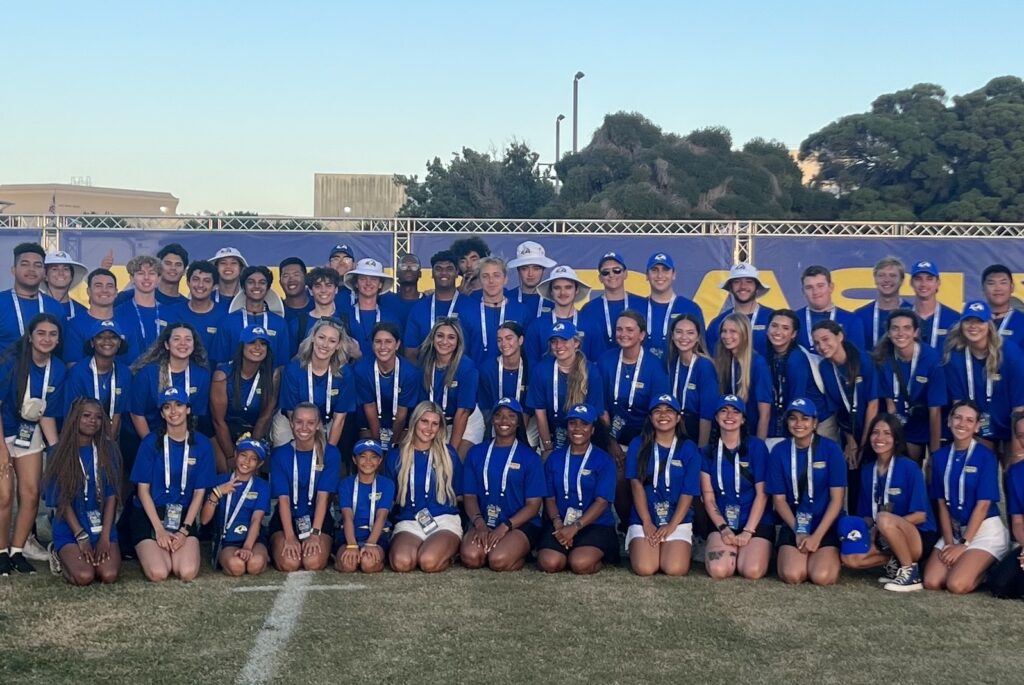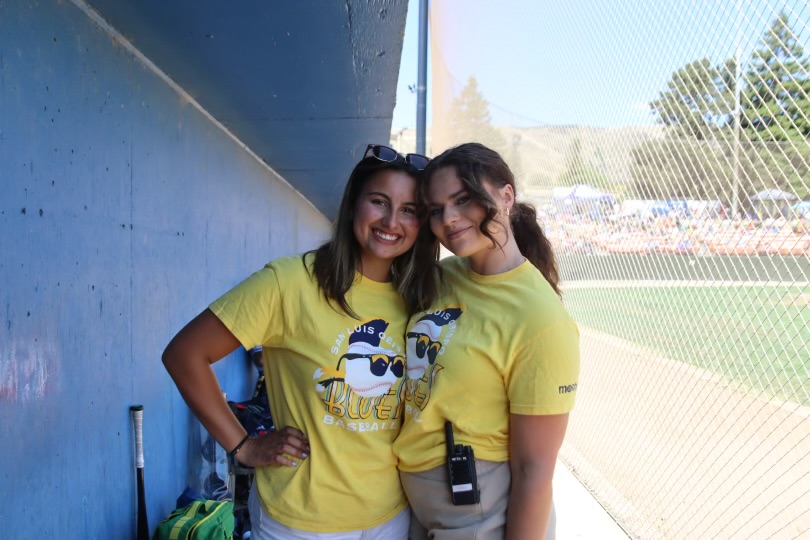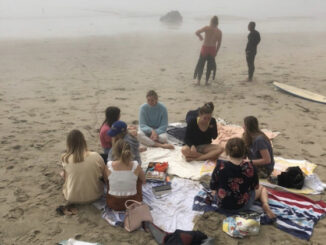
Lauren Rocco, junior business administration major and track team runner, spent her summer interning with Prospect Select baseball. Prospect Select Baseball is a sports organization that holds showcases and tournaments for amateur baseball players. She traveled around the East Coast, working on a variety of tasks including marketing, social media, merchandising and analytics.
Some of Rocco’s coworkers over the summer treated her like a student, while others considered her a peer. She was excited to get back to the challenges and expectations of class. However, she faced some struggles readjusting to her on-campus life.
“You come back to reality and you’re here at school doing work, trying to fit in a job that might not go toward your career,” Rocco said.
Many students finished their summer internships having gained new perspectives on themselves and their careers. Now they’re experiencing a relatable but scarcely mentioned readjustment period.
Some students found the transition back to campus life and classes to be a return to normalcy or a welcome break from an unsustainable workload. Meanwhile, others found the transition back bittersweet as they wrestled with the need to put their careers on pause.

A busy summer
Olivia Cerbie, junior sport administration major, spent about a month over the summer interning with the Los Angeles Rams in Orange County. She worked at training camps, handling VIPs and assisting with the marketing and brand activations teams. She said her supervisors treated her as a student, which allowed her freedom to learn and make mistakes. Her professors at Pepperdine seem to know what to expect of students, whereas her supervisors with the Rams weren’t sure what students were capable of.
In London over the summer, junior economics major Chase Jackson became the first Pepperdine student to complete a virtual internship while in a non-internship abroad program. Jackson interned for the Chicago-based sports data and analytics company Stats Perform. He worked virtually on the learning and development team, helping to improve the company’s training modules and make them more user-friendly for younger people. He said his coworkers saw him as a peer, rather than a student. He thought his professors and advisors on campus didn’t know how much he was capable of.
Ashley Paulsen, who was a first-year journalism major and sport administration major last year, is now studying at Cuesta College alongside her work with the San Luis Obispo Blues baseball team. Paulsen did a summer internship with the Blues, working as the team’s social media director and photographer. The Blues are now promoting Paulsen to assistant general manager. She said her coworkers and supervisors appreciate her knowledge and work ethic in a way that professors didn’t.
A return to normalcy
Whether it be a full summer or just a few weeks, an internship can be draining. For many, returning to campus-life can be a much needed break.
Cerbie found the return to campus to be a breath of fresh air following her busy internship.
“I was in such a football mindset and such a Rams mindset for so long,” Cerbie said. “Coming back to a different goal, a different program, it made me more appreciative of everyone here.”
The expectations professors set can be lofty, but there is a margin for error. In a professional environment, when representing a brand, mistakes aren’t always an option.
“My boss at the Rams probably expected a little bit more of me than my
professors, just because you’re working at such a high caliber,” Cerbie said. “There is a lot at stake, because you’re affecting someone’s experience and if they’re going to be a Ram’s fan.”
This is a familiar sentiment to Brian Hemsworth, advertising professor and internship coordinator of the Communication Division. He said many students go into internships expecting it to resemble their past part-time jobs.
“One of the most common things I hear from students following an internship is that they really didn’t have a good idea about what the work place was like,” Hemsworth said.
But this stress is something many students expect going into their internships.
Jackson said he was discouraged by everyone he spoke to on campus while considering whether to do his internship while abroad.
“I talked to four or five people in IP, I talked to OneStop, I talked to someone in the diversity space on campus, I talked to peers, I talked to my parents, I talked to everybody, and no one said it was a good idea,” Jackson said. “The IP director looked in my face and said ‘You’re going to fail.’”
But he didn’t fail, and after a summer balancing work, school and travel, Jackson said he found the transition back to the lighter workload in Malibu to be seamless.
Jackson said that while he’d happily take on the same challenge again, there’s no chance he would recommend interning alongside abroad studies to other students.
A bittersweet return
For others, leaving their internships to return to campus brought about mixed feelings. Rocco said she was glad to be back, but she is struggling to find a good on-campus job and is looking forward to getting to her next career opportunity.
“It was nice to have the professional experience,” Rocco said. “It feels more real. It feels like a step toward adulthood.”
Hemsworth sees this desire to get back into the world and onto the next career steps in many returning interns. That itch to keep moving is one he personally experienced as an undergraduate.
He said his senior year as an undergrad was the longest year of his life. All he could do was trudge on, and get through it.
Public Relations Professor Klive Oh struggled with whether to pursue his career or finish his studies as a student at Korea University. Samsung Electronics offered Oh a full-time position during his final semester as an undergraduate.
“It was a catch-22 situation because the job, the employer, also wanted the degree to be completed by a certain date,” Oh said.
Oh chose to work full-time alongside his final year of studies. While Oh is proud of the resilience he gained throughout that experience, he said it took such a toll on his health that he wouldn’t recommend it to others. The financial independence that came with taking the job was the major motivating factor for Oh.
Rocco echoed this sentiment. The biggest downside of ending her internship was losing the income.
“Because my internship was paid, but I don’t have a job right now, so that’s tough,” Rocco said.

An early departure
Following the record tuition rise for this year, Paulsen was one of the students who were left with little choice but to leave Pepperdine.
Paulsen prefers to say she was forced out, rather than dropped out, as a result of the tuition bump.
“It was very much not attainable for getting a journalism degree,” Paulsen said. “Because they make an average of $30,000 a year and when I’m supposed to take out a $30,000 loan, it’s going to take me 10 years to pay me off, so I was like ‘I can’t do this.’”
Paulsen said her journalism and sport administration classes often bored her. She found the experience she gained from working was more applicable to her long-term goals of becoming a journalist covering Major League Baseball.
“I feel like with hands-on careers like that, degrees should be less required, because it’s something you can learn on the job,” Paulsen said.
Oh and Hemsworth both find that a few students in every class return from their internships with this concern at where they’re headed next.
Oh said he expects every ambitious senior at Pepperdine to consider how their degree weighs against potential career moves and how it may or may not aid them after graduation.
Hemsworth said the national average for students being offered a full-time job upon graduation or immediately following academic internships was below 20%.
“Pepperdine students might track at double that rate, or closer to 30%,” Hemsworth said.
Oh said he can’t overstate the value of a degree, especially one from Pepperdine. But he understands the concern.
“If graduating from college and getting a degree from our university or our program isn’t as important to you as that professional experience that you would get in the first five years of your career,” Oh said. “Then don’t let it be in the way just because it’s the social norm or because there’s peer pressure or pressure from your family members.”
Marlowe Lalonde reported this enterprise story in Jour 241 during the Fall 2023 semester under the supervision of Dr. Christina Littlefield and Dr. Theresa de los Santos. Dr. Littlefield supervised the web article.




